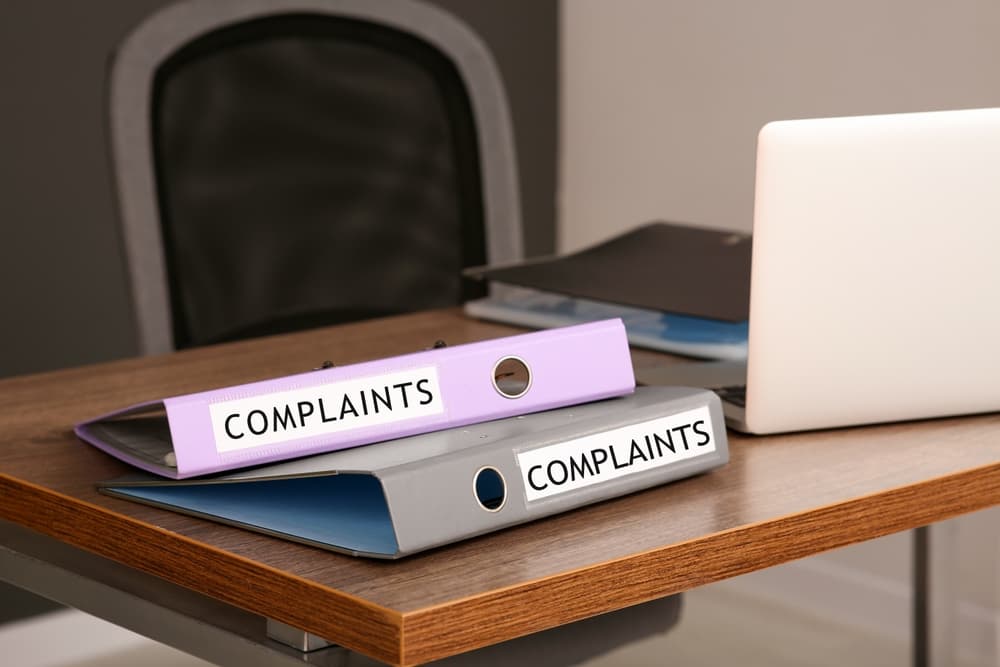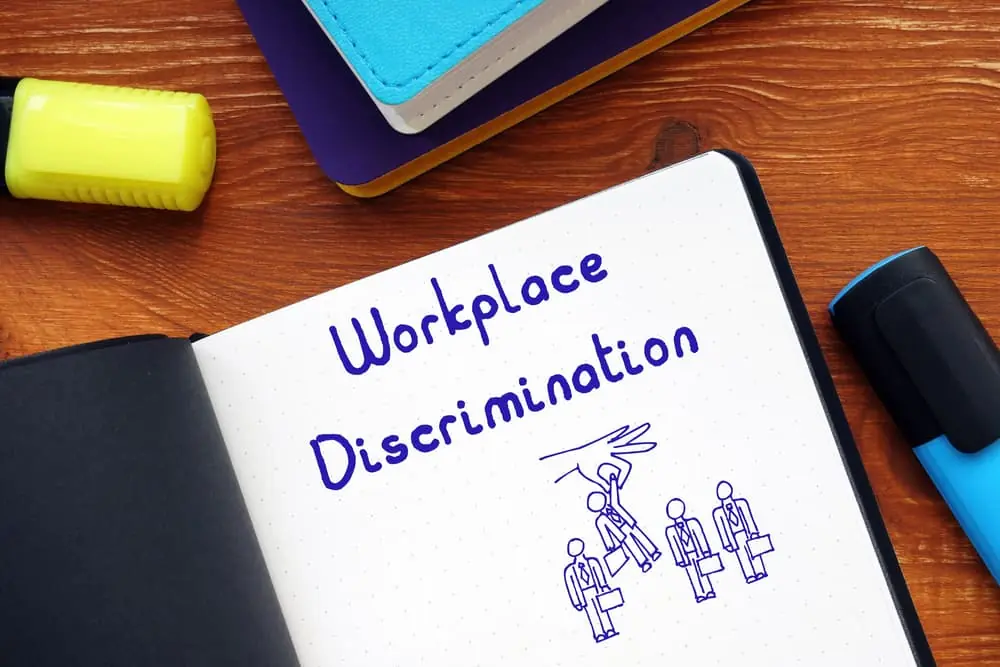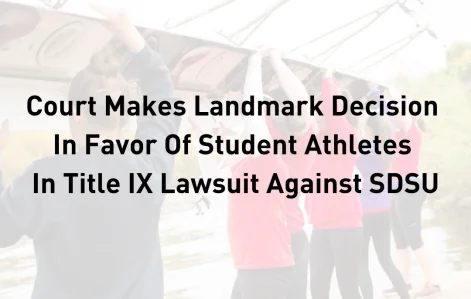If you believe you’ve experienced discrimination at work in California—whether based on age, race, gender, disability, or another protected class—act quickly. California law sets strict deadlines for filing discrimination claims, and missing these deadlines can mean losing your right to pursue justice.
Don’t wait too long to speak up. Call a workplace discrimination attorney in San Diego, CA today.
Schedule a Free Case Evaluation
Why Should I Even Worry About Deadlines?

You might think, “I’m upset at what happened to me. I’ll deal with it when I feel ready.” While it’s normal to want time to heal or plan, waiting too long is risky.
In California, the law sets strict deadlines for filing your claim. In most cases, if you miss these deadlines, even by a day, you might lose your chance to seek justice through the legal system.
Think of it like a coupon that expires. No matter the validity of your complaint, the store may not let you redeem it if you don’t use it on time. The same idea applies to discrimination claims. Once time runs out, you usually can’t file a lawsuit or complaint based on that incident, even if the employer did something wrong.
What Is the California Civil Rights Department (CRD)?
In California, the main agency that handles discrimination claims is the California Civil Rights Department (CRD). It used to be called the Department of Fair Employment and Housing (DFEH). The CRD ensures workplaces follow state laws about fair treatment, such as the California Fair Employment and Housing Act (FEHA).
Suppose your employer treated you unfairly and violated your rights at work. In that case, whether it’s because of your race, age, disability, religion, sex, gender identity, sexual orientation, or any other protected characteristic, you can file a complaint with the CRD. The CRD will look into your case, gather facts, and try to help fix the problem.
How Long Do I Have to File With the CRD?
Under FEHA, you usually have three years from the date of the bad behavior (the discriminatory act) to file a complaint with the CRD. This means that if your boss fired you unfairly on January 1st of a certain year, you have until January 1st three years later to file your complaint.
Here are the basics:
- Three-Year Rule: Most people have three years from the day they were discriminated against to file a complaint.
- Continuing Violations: If the discrimination happened over a long period (like repeated racist jokes over months), the clock may start on the last incident.
- Minors: If you were under 18, you may get more time. We’ll talk about that below.
But remember: this rule can get complicated if there are special circumstances, so if you’re unsure, it’s best to talk to someone who understands employment law.
What Happens After I File With the CRD?
Once you submit your complaint, the CRD checks if it has the power to investigate. If it does, it will:
- Contact Your Employer: The CRD will send a copy of your complaint to the person or company you say discriminated against you.
- Gather Evidence: The CRD may ask both sides for documents, emails, or other proof.
- Try to Settle or Mediate: Before going to court, the CRD might suggest a meeting, known as mediation or conciliation, where everyone tries to reach an agreement.
- Issue a Right-to-Sue Notice: If the CRD doesn’t fix the problem or decides not to fully investigate, it may give you a notice that says you can go to court.
Once you receive a right-to-sue notice, you generally have one year from that date to file a lawsuit in a California court. This is a separate deadline from the three-year deadline for filing with the CRD.
What If I Didn’t Know I Was Discriminated Against Until Later?

Sometimes you don’t realize there was discrimination until months or even years later. Maybe your employer hid important facts. Maybe you just discovered that a rule treated people differently based on race or gender.
In certain cases, the law extends the deadline if you reasonably couldn’t have known you faced discrimination. This is often called the “delayed discovery rule.” It’s not automatic. You will usually have to show:
- When you found out about the discrimination,
- Why didn’t you know earlier, and
- That you took action as soon as you did learn.
If this might apply to your situation, talking with an experienced legal professional is a good idea. They can guide you on how to prove delayed discovery.
I’m Under 18 — Do I Get More Time?
Yes. You usually get extra time if you were a minor when the discrimination occurred. Under FEHA, a person under 18 typically has one year after turning 18 to file a complaint if the standard three-year period has already passed. This rule makes sense because the law assumes minors might not be fully aware of their rights or might rely on adults who don’t file a complaint on their behalf.
For example:
- Let’s say you are 17 when a workplace discriminates against you.
- You turn 18 six months later.
- Sometimes, the timeline extends, giving you up to one year after your 18th birthday to file.
Because these rules can be tricky, it’s always best to seek clear guidance to be sure you understand your exact deadlines.
Do I Need to File with the CRD First, or Can I Go Straight to Court?
For California discrimination claims under FEHA, you typically must file with the CRD before filing a lawsuit in court.
The CRD might:
- Investigate the case,
- Try to help both sides reach an agreement, or
- I have decided to give you a right-to-sue letter.
You can bring your discrimination case to a California civil court only after you get the right-to-sue letter. This process, called “exhausting your administrative remedies,” means you must try the CRD first.
What About Federal Discrimination Claims?
Federal discrimination claims go through the Equal Employment Opportunity Commission (EEOC). Usually, you have 180 days to file a complaint with the EEOC. However, if your state has a law protecting against the same type of discrimination (California does), the time can extend to 300 days.
Keep in mind that the EEOC process is different from California’s process. If you have claims under both federal and state laws, you can sometimes file with the CRD and ask them to cross-file with the EEOC, or vice versa. This way, you simultaneously meet the filing requirements for state and federal claims. But each agency has its deadlines and rules, so it’s wise to double-check or get professional advice.
What if My Employer Is a California State Agency?
If you work for a California state agency (sometimes called state civil service) and you feel discriminated against, there might be special steps:
- You might have to file a written complaint with the agency that hired you within one year of the problem.
- After that, you might still need to file a formal complaint with the CRD to pursue a FEHA claim.
The deadlines and steps are different if you work for the federal government. Federal employees typically must contact an Equal Employment Opportunity (EEO) counselor within 45 days of the discrimination. This is a much shorter window. You might lose your right to bring a federal claim if you miss it.
What About Complaints to the Labor Commissioner for Workplace Discrimination?

California also has a Labor Commissioner who enforces some workplace laws. There’s a law called California Labor Code § 98.7, which allows you to file a complaint about certain types of workplace discrimination or retaliation with the Labor Commissioner.
Typically:
- You have one year from the date of the bad act to file this complaint.
- That year sometimes extends if you have a good reason for missing the deadline.
However, not all forms of discrimination go through the Labor Commissioner. Many people file with the CRD instead, especially if they’re dealing with discrimination based on protected traits like age or gender. The best path depends on your specific case.
Do I Have Different Deadlines for Income or Hour Violations?
Sometimes, you have a mix of problems at work: maybe your boss discriminated against you and refused to pay you your full income. That’s very common, but remember that the deadlines can differ.
For most earnings and hour claims in California, you have:
- Three years to file a claim for unpaid income, missed breaks, or overtime issues with the Labor Commissioner.
- You get two years if someone breaks only an oral agreement about pay.
- You get four years if someone breaks a written agreement about pay.
If you’re dealing with income issues and discrimination, you might need to file in two places — the CRD for discrimination and the Labor Commissioner or court for income claims. Each has its deadline, so don’t wait.
What Happens if I Miss the Deadline?
If you miss the deadline, you generally can’t file a claim about that incident of discrimination. The CRD or the courts will usually dismiss your case, no matter how serious your complaint is. That’s why it’s important to keep track of dates and act promptly.
In very rare situations, you might get an extension. For instance, if you were in a coma or seriously disabled and physically couldn’t file, you might argue for equitable tolling (a legal term for pausing the clock). But this is not easy to get. It’s far better not to rely on exceptions unless you have no choice.
Is There a Way to Pause the Deadline?
Sometimes the deadline can be paused or “tolled” if you and your employer agree to it in writing, which is called a tolling agreement. Or a court might decide to pause the clock if it’s fair to do so (equitable tolling). But these scenarios are not common. If you need more time, talk to a California workplace discrimination attorney immediately.
What Should I Do If I’m Confused About Deadlines?

It’s normal to feel lost. The laws can be very confusing, and each type of claim or agency has different rules.
If you’re unsure:
- Write down the dates of every important event. This includes when the discrimination happened, when you reported it, and any employer responses.
- Contact a discrimination lawyer who handles employment law. Bring all your notes and any documents or letters you have.
- Act sooner rather than later. It’s better to file too early than too late.
Waiting usually makes things harder. You might forget details, lose evidence, or miss the chance to bring a claim altogether.
How Do I File a Claim With the CRD?
- Prepare an Intake Form: You can fill out an intake form on the CRD’s website or send it by mail. You’ll describe what happened, give your employer’s contact info, and attach any proof (like emails or texts).
- CRD Interview: If the CRD thinks FEHA might cover your issue, they’ll contact you for an interview.
- Signed Complaint: If the CRD accepts your complaint, they will write it up officially and ask you to sign it.
- Investigation: They might ask your employer questions, demand documents, and talk to witnesses.
- Possible Mediation: The CRD may arrange a settlement meeting between you and your employer to resolve the issue outside of court.
Throughout this process, pay attention to any letters the CRD sends you. If you ever decide to sue in court, you can request a “right-to-sue” letter. Then you’ll have one year from that letter’s date to file a lawsuit.
Can My Case Also Be Filed Under Federal Laws?
Yes. If the discrimination breaks federal laws, like Title VII of the Civil Rights Act or the Age Discrimination in Employment Act, you might also file with the EEOC. This gives you another path to justice. But remember, the EEOC deadlines can be shorter (180 to 300 days), so it’s important to keep track of all possible deadlines.
Many people do what’s called “dual filing,” where they file with the CRD and the EEOC at the same time. One agency usually leads and notifies the other. Don’t overlook one—it might cost you a claim you’ll want to pursue later.
Ready to Take the Next Step? A Workplace Discrimination Attorney Can Help
Standing up to workplace discrimination isn’t easy, but you don’t have to do it alone. A skilled California workplace discrimination lawyer can handle the deadlines, gather the evidence, and fight for the justice you deserve while you focus on moving forward.
Act now, because time matters:
- The three-year clock for filing with the Civil Rights Department (CRD) starts the day the discrimination happens.
- The one-year clock starts the day you get your right-to-sue letter.
- No second chances if those deadlines pass.
If you have questions or are unsure whether what happened to you is illegal, reach out for a free, friendly, no-obligation case evaluation. A compassionate California employment lawyer can help you.
Call today. Your time to act starts now, as does your path to justice.





